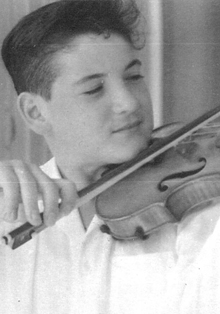Pedro Canales
Journalist
The political parties that have a ‘sense of state’, including the Basque and Catalan nationalists, although the latter do so with a half-ethnic, half-regionalist slant, have failed to enter the ‘rag’ launched by Yolanda Diaz to introduce ‘the Moroccan question’ into the debates of the electoral campaign for the municipal and autonomous regional elections that is already underway.
The vice-president of the government wanted to introduce the delicate issue of relations between Spain and Morocco, with the question of Western Sahara in the middle, in order to force the major parties to get involved and take a stance. This issue has been dividing Spanish society for almost half a century and is a permanent clash between all factions of the parliamentary and extra-parliamentary political arc.
However, despite the abruptness of her accusations, calling King Mohammed VI a “dictator” and threatening to “break the current relations that have existed between the two countries for the past year” if she were to govern, no party has backed her. If the number two in the government wanted to put her partners in government, the PSOE, and their external supporters, the Catalans and Basques, nationalists and republicans, in a bind, she has not succeeded.
Certainly, these political formations that have remained silent do not have the same perception of their southern neighbour, nor of the possible viable solutions to the Western Sahara conflict, but in all of them, at least so far, the idea has prevailed that “this is not a problem that concerns the municipal and regional elections”. Pedro Sánchez had already done so a few days earlier when he ordered a citizen waving a Polisario Front flag to be removed from the hall of a party meeting. It was neither the time nor the place.
This does not detract from the fact that Sánchez’s government is maintaining aid to the Sahrawi refugee camps in Algeria, which has risen from 8.3 million euros in 2022 to more than 12 million in 2023. In short, Morocco, the Sahara, the European Union, the United States and the war in Ukraine are not the responsibility of mayors or regional presidents, but of state foreign policy.
This was not, however, Diaz’s sole purpose in evoking the ‘Moroccan-Saharan question’. The leader of the recently formed political group SUMAR, which is making its debut in these upcoming elections, wanted to deal a mortal blow to her rivals in Unidas-Podemos, who until now believed they had a monopoly on popular mobilisations “in solidarity with the Sahrawi people”, presenting themselves as the champion of freedom for “oppressed and colonised peoples”. And that because Yolanda Diaz aspires to unite the whole extreme arc, from the radical socialist left to the anti-system anarchists and republicans, in a new Popular Front under her mantle. Yolanda Diaz knows that she will never be able to give the “sorpasso” in a general election, but she wants to be the only interlocutor of the PSOE to repeat a future coalition government, as long as the ballot boxes allow her to do so.
© Atalayar / All rights reserved






